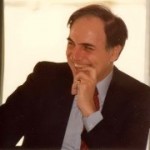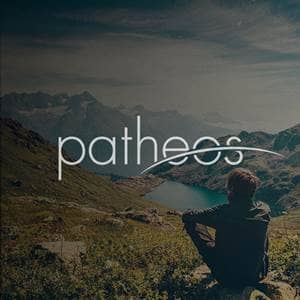Chanukah is a challenging holiday for Humanistic Jews.
Yes, you read that correctly. Our little celebration of the Maccabees’ victory over the tyrannical Seleucid Greek empire is fraught with challenges for anyone who gains a clear understanding of what really happened in the mid-second century BCE.
According to the standard narrative, the evil Antiochus IV sought to repress religious freedom for the Jews of Second Temple Judea in order to unite his kingdom under one Hellenistic (Greek) standard. He was aided by Hellenistic Jews who betrayed their own people, rebelling against their faith and even defiling the Holy Temple, sacrificing non-kosher animals to Zeus.
On the other side stood a group of plucky priests led by the Hasmonean Family and their patriarch Mattathias. He and his sons – notably Judah – staged a revolt and defeated the Greeks. For this they earned the name “Maccabees,” possibly deriving from the word for “hit” or “hammer.” When they sought to purify their defiled Temple, they found a critical lack of holy oil that miraculously lasted for eight days! Thus was born the holiday of Chanukah, meaning “dedication,” for they had re-dedicated the Temple.
The first challenge of this holiday is the story of the magic oil, but it’s also the easiest to dismiss. No contemporaneous source so much as hints at such a miracle. It first appears hundreds of years later in the Talmud. It was probably invented or promoted in order to de-emphasize the military aspects of the story in favor of the miraculous nature of the victory and its aftermath. The rabbis who circulated the oil legend lived on the other side of two horrific defeats of the Jews at the hands of the Romans (in 70 CE and again in 135 CE). They saw no reason to fan the flames of rebellion. So they reminded their fellow Jews that God was the real warrior in the Maccabee story.
That’s not exactly a Humanist sentiment and because the story remains thrilling even without the magic oil, Humanistic Jews have no problem dismissing it. We don’t believe in magic anyway.
The real challenge lies in the rest of the narrative. What if the Maccabees weren’t so much defenders of religious freedom as they were zealous religious bullies? What if the Hellenizing Jews were simply seeking ways to be more cosmopolitan, universalist, open to fresh ideas and world culture? What if Antiochus IV was not a madman, but a reluctant participant in a war that he was generally uninterested in fighting?
Professor Yosef Hayim Yerushalmi of Columbia University was one of the greatest Jewish historians of the modern era. In 1982 he published an influential book called Zakhor: Jewish History and Jewish Memory. In it he examined the dichotomy that had emerged between the collective mythologized memory of the Jews and the actual history that academics were uncovering. He argued that modern Jewish historiography had led to a rupture in Jewish identity. The Jewish obligation of “Zakhor – Remember!” that was articulated in the Torah and for millennia thereafter was now threatened by the stark reality that much of what we remembered had never happened at all. Or worse, it had happened in a way that completely contradicted the way we remembered it.
Yerushalmi was a man of religious faith for whom this dilemma was greatly intensified. But the Jewish mythos is dear to many Jews and this dilemma challenges the secular and faithful alike. It was secular Labor Zionism that adopted the Maccabees as their symbol of resistance and Jewish empowerment. Some Humanistic Jews celebrate them as exemplars of human courage.
I find it impossible to admire the Maccabees. In fact, my sympathies tend to lie with the Hellenizing Jews. They at least sought avenues toward tolerance and integration with the larger world culture. But even those sympathies are probably misplaced. From everything I’ve learned about them, they were also elitist jerks.
Bereft of an inspiring tale to “Remember!” I must find other reasons to celebrate Chanukah.
I have discovered one, not in the bravery and derring-do of the Maccabees at war, but in something that they did subsequently. They declared a holiday. And in so doing they revealed something about themselves that I’m sure they would have denied. By declaring a new holiday these zealots – who regarded themselves as the bulwark against impure openness to world culture – demonstrated that they themselves had absorbed some of that world culture.
Declaring a holiday, you see, is not sanctioned by the Torah. Who may declare holidays? Only God may declare holidays!
The Maccabees led a revolt for Jewish religious purity completely unaware that the larger world had already snuck into their own subconscious. Even their selection of the date, the 25th of Kislev, the darkest night of the year, indicated that they had actually adopted the solstice holiday of the hated Greeks! Later they would claim that their eight day festival of light was a delayed celebration of Sukkot. Later still, Talmudic rabbis made it about a mythical jug of oil.
The Maccabees were not particularly nice people. We probably would not have liked their worldview. The other side, though open to the world, was power hungry and elitist. There were no real heroes, no one we can really admire.
But there was winter and solstice and a growing integration of the Jews into world culture. Thus was Chanukah born, a winter time festival of lights for a people who never had a solstice festival before. For me, that’s enough reason to celebrate.















